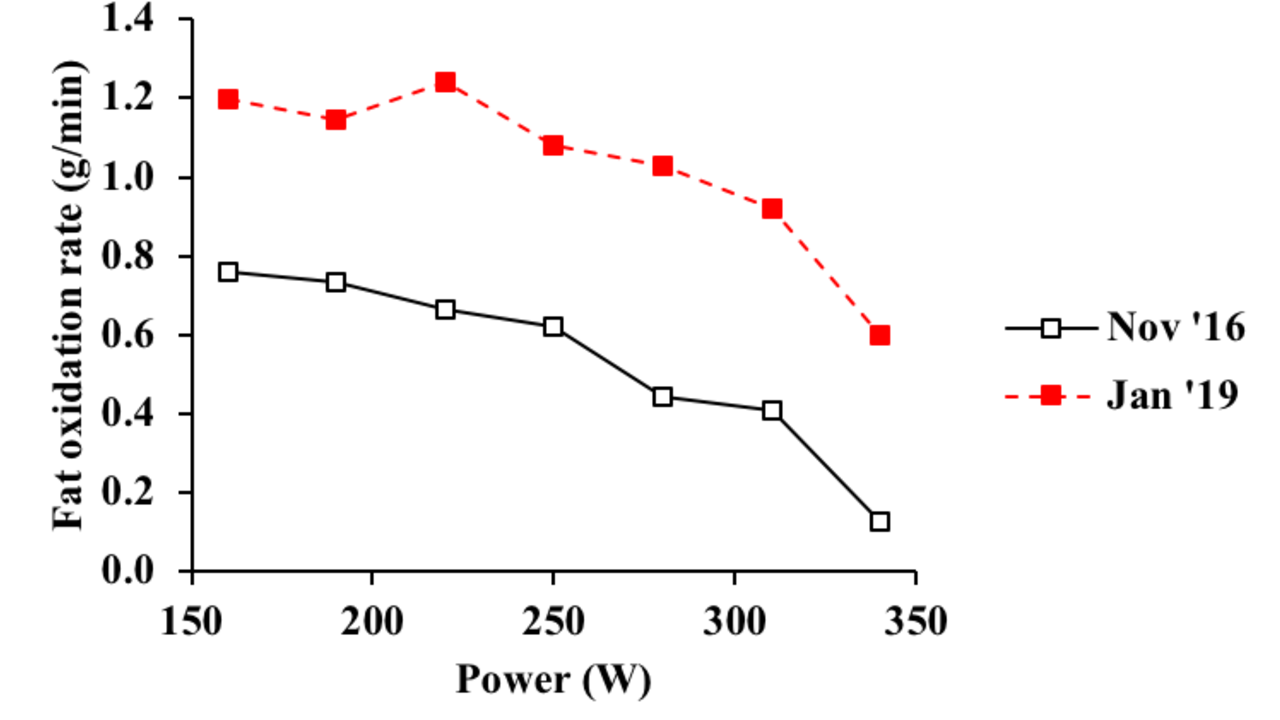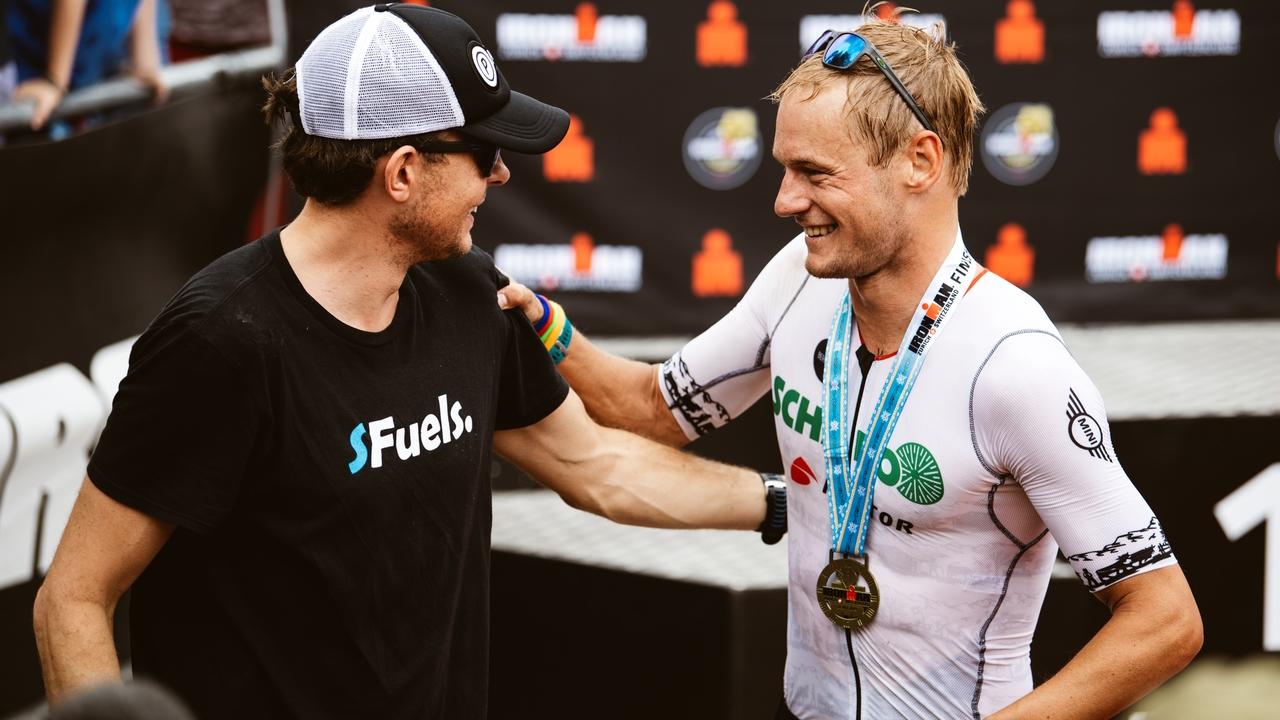Jan Van Berkel: The Ketocop on the Low Carb Healthy Fat Diet

Fresh off the plane from Zurich, I’m still on a high after seeing my good friend and athlete Jan van Berkel finished on top of the podium at the last ever Zurich-hosted Ironman Switzerland last weekend in a blistering time of 8:17:04. Jan likes to call himself The Ketocop, so the title of this blog is very appropriate.
Jan led the field out of the water with a 51:38 swim, led the field off the bike after a 4:35:14, and romped home to a 6-min victory over countryman Sven Riederer after a 2:46:41 marathon. Jan’s victory seems like an appropriate time to talk you through the journey we have been on through his Ironman career to date.
Jan approached me in 2016 as a very talented triathlete with quality results in Olympic distance triathlon but he was struggling to transition to Ironman. He had, as many do, been consistently blowing up in the last 10-15 km of the marathon, full of gels but out of gas. Given his pedigree at the Olympic distance, I certainly could see the potential in Jan. It seemed to me, that driving up his fat oxidation, through adaptation to a Low Carb Healthy Fat (LCHF) diet, was something that we could do to get him the results he wanted. After doing some testing in the lab, it was clear that his metabolic profile as it was, would simply not allow him to maintain the run speed he needed through to the finish – he was hitting the wall.
My approach with Jan
When I took over as Jan’s coach, I put him through the changes I am teaching you all about in Endure IQ LDT 101. I advised making dramatic changes to his diet, that is, a LCHF approach. Jan went through an initial ‘cold-keto’ phase in an effort to shift his metabolism away from his limited carbohydrate stores and more towards fat, in order to try and prevent the dreaded bonks that he had been experiencing late in the Ironman marathon. This involved:
- An initial severe carbohydrate restriction phase, to kick-start the LCHF adaptation process and push up his rate of fat oxidation
- Building a large training volume through a polarised intensity distribution approach
- Working backwards from specific power and paces that we felt were necessary to achieve what he needed to
- Determining appropriate carbohydrate fuelling during racing
All of which is covered in great detail in our course LDT101.
A really important part of the approach I have taken, and continue to take with Jan, is the inclusion of specific higher-intensity, interval-type workouts within his training programme. Inclusion of these high-quality sessions is critical for all long-distance triathletes, especially those transitioning to a LCHF diet. One of the main concerns people have about transitioning to LCHF is the loss of their “top-end”, or their ability to produce and sustain power outputs at and above lactate threshold, since this requires the ability to rapidly access and metabolise carbohydrate energy stores. However, in my experience as both an athlete and a coach, I feel that with a little perseverance, these concerns can be alleviated provided that high-intensity training is maintained. There is an initial drop in “top-end” performance, but, crucially, it does bounce-back. It just takes a few weeks on LCHF for the required adaptations to take place and to allow those high-intensity sessions be nailed as they had been previously.
In fact, this is actually something I recently investigated with some colleagues in the Czech Republic in a study that has just been published in the journal Frontiers in Physiology. Here, we transitioned a group of volunteers to a LCHF diet for 12 weeks and studied the changes in their performance. An initial decline in high-intensity performance was observed, but we also observed a bounce-back in their top-end performance. That is, after sufficient time for adaptation, high-intensity performance improved. I’m going record a video on the results of this study specifically, so stay tuned for that.
The data
As an exercise physiologist, I love to get athletes in the lab to make sure that the changes we are expecting are actually taking place. This is still the case with an elite athlete like Jan. So, when we had Jan undergo a metabolic assessment in January this year, we were delighted with his results. Through our training and dietary interventions, Jan’s maximal rate of fat oxidation increased from 0.76 to 1.24 g.min-1, with the intensity at which this occurred increasing from 160 to 220 W. Perhaps more important than these specific values was the dramatic increase in Jan’s fat oxidation rate at 250 W (close to his Ironman wattage). His fat oxidation at 250W went from 0.62 to 1.08 g.min-1, meaning that fat went from producing 37% of his energy up to 70% of his energy. Have a look at the data below:

Figure 1. Jan's changes in fat oxidation rates, 2016 vs 2019.
These are big changes which warrant some back-of-the-envelope calculations. In Jan’s bike leg alone, he would have oxidised ~350-400 fewer grams of carbohydrate with his January 2019 metabolic profile compared to his November 2016 metabolic profile, sparing the equivalent of a staggering 17-20 gels! How can anyone argue that shifting your fat metabolism in such a way is not effective for Ironman?!
It is therefore unsurprising that his marathon time has consistently improved as well, from middle-of-the-pack 2:55-3:00 down to a blazing 2:45 through the maintenance of his early pace without the fear of a late-race bonk and blow up. Indeed, Jan was strong late in his marathon in Zurich; he was level with Riederer at the 10.5km checkpoint but put nearly 7 minutes on him in the last 30-km.
Concluding remarks: The Endure IQ approach is not just for amateurs!
Jan’s transition to LCHF has transformed his performance at the top-level of Ironman triathlon, which shows that the Endure IQ approach is not just for amateurs seeking to get across the finish line without having to ingest too many gels. With patience in adaptation, specific training prescription, and a healthy dose of high-intensity work, Jan is now a major threat in the world’s most competitive Ironman events.
If you'd like to learn more about how to adopt the LCHF approach to optimize your long distance triathlon performance, check out our online course - Endure IQ LDT101: The Practical Application of Low Carbohydrate Performance for Long Distance Triathlon

Image 1: At the finish line with Jan. Smiles all around.
JOIN THE SQUAD
Take charge of your performance with proven training programs and workouts, adjustable to your needs, in the Endure IQ Training Squad.
LIMITED OFFER
